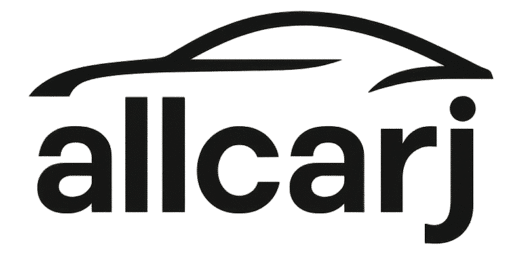Ford Recalls Mustang: Ford has announced yet another recall for its 2022-2023 Mustang models due to an issue stemming from a previous recall. The automaker initially recalled over 30,000 Mustangs last year to fix a steering gear calibration issue. However, it has now been discovered that some vehicles were incorrectly marked as repaired, despite not having received the necessary software update. As a result, Ford is now recalling a few hundred Mustangs again to ensure that the problem is properly addressed.
The issue lies within the power steering control module (PSCM), which requires a software update to correct an inverted polarity calibration error. This problem can cause unintended steering assist behavior, leading to a potential loss of vehicle control. Ford has acknowledged the oversight and is taking steps to notify affected Mustang owners, urging them to visit their dealerships for a free software update.
This new recall adds to Ford’s growing list of recalls in recent years. The company has faced mounting quality control challenges, with CEO Jim Farley emphasizing the need for improvement. With this latest development, Ford aims to rectify its previous mistake and ensure that Mustang owners receive the proper fix to maintain safe driving conditions.
Specifications and Features Of Ford Recalls Mustang
| Feature | Details |
|---|---|
| Model Years Affected | 2022-2023 |
| Issue | Incorrect PSCM software update |
| Affected Component | Power Steering Control Module (PSCM) |
| Initial Recall | 30,735 Mustangs |
| Secondary Recall | Few hundred Mustangs |
| Fix | Correct PSCM software installation |
| Cost to Owners | Free repair at dealerships |
Ford Recalls Mustang erformance and Safety Concerns
The primary concern with the affected Mustangs is the potential for unintended steering assist behavior. The initial recall was issued because the secondary digital torque sensor in the steering gear had been calibrated with an inverted polarity. This problem can manifest when the primary steering torque sensor fails, leading to erratic steering wheel oscillations that may cause a loss of vehicle control.
While Ford has not specified the severity of the oscillations, the company acknowledges that they pose a safety risk. Ensuring that the correct software is installed is crucial to maintaining proper steering performance and preventing accidents.
Ford Recalls Mustang Design and Engineering Oversight
The Ford Mustang is an iconic vehicle known for its aggressive styling and high-performance capabilities. However, even well-engineered cars are susceptible to manufacturing and software errors. This recall highlights the growing complexity of modern vehicle technology, where even minor software miscalculations can have significant consequences.
Ford’s commitment to addressing this issue showcases its dedication to improving quality control. However, the recurrence of recalls raises concerns about the brand’s ability to prevent such issues from arising in the first place. Mustang owners should be vigilant and ensure their vehicles receive the necessary software updates to maintain optimal performance.
Ford Recalls Mustang Price and Availability

Since this recall does not involve a new product launch, there are no changes to Mustang pricing. The base price for a 2023 Ford Mustang starts at around $30,000, while higher-performance variants like the Mustang GT and Shelby GT500 can exceed $80,000, depending on customization options. The recall service is being offered free of charge to affected owners.
Ford’s Recall History and Future Implications
This Mustang recall is just one of many recent recalls issued by Ford. According to the National Highway Traffic Safety Administration (NHTSA), Ford has issued 10 recalls so far this year. In 2024 alone, Ford ranked as the third-most recalled brand, issuing 67 recalls affecting approximately 4.8 million vehicles. The company’s ongoing recall issues reflect a broader need for improved quality control measures.
CEO Jim Farley has acknowledged these challenges and expressed his commitment to addressing them. The company is working on refining its quality assurance processes to prevent similar issues in future vehicle models.
Also Read: Mansory Elongation: The Modified Tesla Cybertruck That Sparks Debate
Ford Recalls Mustang Conclusion
The latest Mustang recall serves as a reminder of the importance of thorough software testing and quality control in the automotive industry. Ford’s initial attempt to fix the steering calibration issue fell short, necessitating a secondary recall to ensure all affected vehicles receive the proper software update.
While Ford’s commitment to resolving the issue is commendable, the recurrence of recalls highlights deeper challenges within the company’s production and quality control processes. Mustang owners are encouraged to check with their local dealerships to confirm whether their vehicles require the update.
Looking ahead, Ford must focus on reducing recall incidents by improving manufacturing oversight and testing procedures. Addressing these concerns proactively will not only enhance the brand’s reputation but also ensure greater customer satisfaction and safety.
As the automotive industry continues to embrace advanced digital technology, automakers must remain vigilant in testing and refining their software to prevent similar recall situations. Consumers expect reliable, high-performance vehicles, and addressing these issues head-on is essential to maintaining trust in the brand.
Ultimately, the Ford Mustang remains an iconic vehicle, but ensuring that all technical issues are resolved will be critical to preserving its legacy as a top-tier performance car.
Ford Recalls Mustang FAQs
1. What is the latest recall on the Ford Mustang about? The recall involves a software update for the power steering control module (PSCM) due to a previous repair mishap. Some Mustangs did not receive the correct update, which can cause unintended steering oscillations.
2. Which Mustang models are affected by the recall? The recall applies to select 2022-2023 Ford Mustang models that were initially recalled but did not receive the proper software fix.
3. What problem does the incorrect software update cause? It can lead to unintended steering assist behavior, causing the steering wheel to oscillate back and forth, which may increase the risk of losing vehicle control.
4. How can Mustang owners check if their vehicle is affected? Owners can check Ford’s official website or contact their local dealership with their VIN to see if their Mustang is part of the recall.
5. Will Ford charge owners for the recall fix? No, the software update is free of charge. Affected Mustang owners can visit any authorized Ford dealership to get the necessary update.
6. When will Ford begin notifying affected owners? Ford will start notifying affected Mustang owners on March 31, urging them to visit their dealerships for the corrective software update.
7. What steps is Ford taking to prevent future recall issues? Ford’s leadership is actively working on improving quality control measures, refining software testing procedures, and implementing stricter oversight to reduce recall incidents in the future.

